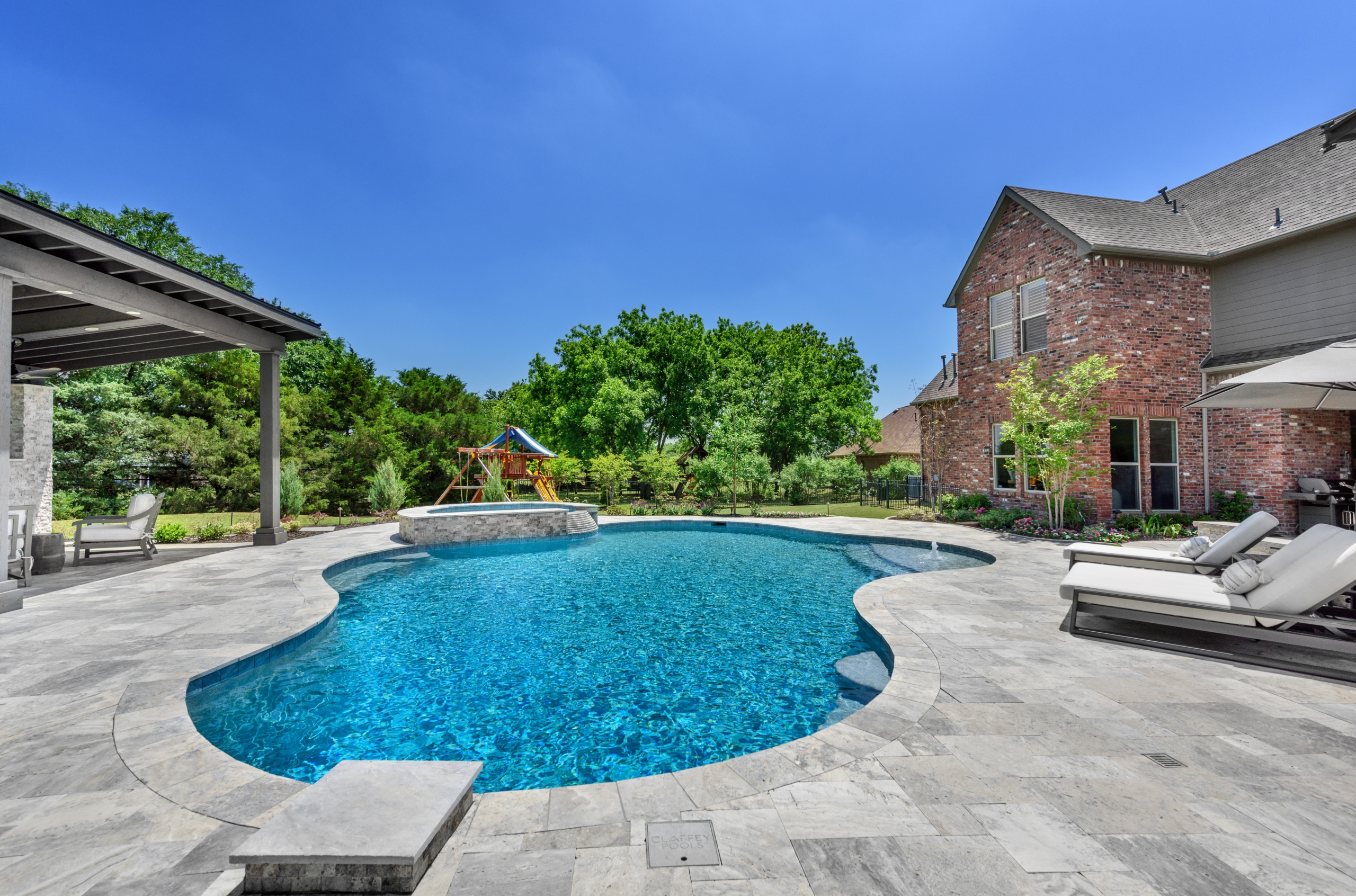Swimming Pool Mastic FAQs
Building a pool in your backyard offers a multitude of benefits, providing a space to relax, exercise and escape the scorching summer temperatures. However, it’s also a considerable investment that you’ll want to protect for years to come. Before beginning any work, it’s important to understand the inner workings of your pool and know just what materials go into constructing it; that way, you can ensure it’s correctly maintained.
While there are some pool construction materials you may have heard of — gunite, plaster, and tiles, for example — you may not have come across mastic before. This is a vital component in any pool, but what exactly does it do? The team here at Miller Pools is here to answer all of your questions.
What is pool mastic and why is it important?
Pool mastic is the expansion of joint caulking or sealant around swimming pools. Sometimes referred to as pool sealant, this waterproof adhesive has one very important job: to seal your pool and prevent it from leaking.
Swimming pool mastic is an important part of your pool for a number of reasons:
-
It prevents leaks
Mastic stops pool water from leaking into other areas.
-
It’s flexible
In extreme temperatures, certain parts of your pool can expand and contract. The flexible nature of mastic means no cracks or damage will appear when the temperature changes.
-
It improves longevity
By preventing cracks or damage from appearing, pool mastic improves the longevity of your pool.

Trouble with your pool mastic?
No matter how complex, our Miller Pools team can perform any pool mastic repair.
Start Your QuoteWhat does pool mastic do and how does it work?
During periods of warmer weather, your pool structure may expand a little. Similarly, during cold temperatures, it may contract slightly. Swimming pool mastic is the caulking used around these expansion joints that allows the concrete structure a little space to move, while also acting as a watertight barrier that prevents water from leaking out.
Is mastic sealant waterproof?
Yes, mastic sealant is entirely waterproof. This kind of adhesive has a texture that’s similar to putty, and it forms a flexible and watertight seal once applied.
How long does mastic take to dry?
Standard pool mastic typically takes around 24 hours to fully cure. However, this can differ depending on various environmental factors, application methods, and the specific product used. You should always carefully follow the manufacturer’s instructions regarding recommended drying times. Alternatively, you can get in touch with the friendly team at Miller Pools if you’re ever unsure — we’ve been working with pool mastic for decades and are more than happy to answer your questions.
How long does pool mastic last?
While mastic is incredibly durable, like any material under regular use, it might succumb to wear and tear over time. Typically, pool mastic is expected to last for several years. However, every pool is different and several factors such as frequency of use and maintenance, product quality, and climate may affect its longevity.
When should I replace pool mastic?
If your pool mastic is in need of replacement, you’ll usually notice several warning signs:
- Peeling: If your mastic starts to peel away, this is a sure-fire sign that it needs to be replaced as it has lost its adhesiveness.
- Cracking: If you notice cracks in the surface of your pool, this indicates that your mastic has lost its give and can no longer accommodate the pool structure expanding and contracting during temperature fluctuations.
- Falling pool tiles: While there are plenty of reasons your pool tiles may have fallen away — such as worn glue, adverse weather conditions, or age — another possibility is that the mastic has failed, causing extreme movement which results in the tiles coming away.
- Coping separation: If your pool mastic fails to properly bond to the concrete sections of your pool, you may notice the coping or decking separating. Initially, this might just appear as a small gap, but it can quickly escalate into significant damage if left unattended.
- Deck rising: Should your deck rise above your pool, consult an expert immediately. This is usually a sign that the ground underneath the deck has shifted in some way and this may have weakened the mastic.
Should I replace the mastic myself?
While it is possible to replace mastic yourself, it can be a complex process. Given how crucial mastic is for the structural integrity of your pool, it’s important to get its installation right the first time, so it’s best to hire a professional with a high level of experience and skill. Here at Miller Pools, we’ve been carrying out pool mastic replacement for over 25 years, so you can have full confidence in the quality of our workmanship.
Is mastic permanent?
While pool mastic will provide long-lasting performance, it will require replacement every few years to ensure continued effectiveness. It’s important to keep an eye out for any of the warning signs mentioned above and carry out regular maintenance so you know the state of your mastic; if it’s left too long without replacement then this may result in costly damage further down the line.
How long before mastic can get wet?
It’s advised to wait until your pool mastic has completely dried before exposing it to moisture. As we’ve covered above, this usually takes around one day but the time-frame can vary depending on which specific product you’ve used.
How to replace pool mastic
Replacing pool mastic can be a complicated process that involves several steps*:
- Use a putty knife to gently scrape away any old mastic from around the expansion joints.
- Clean the joints using a damp cloth to get rid of any dust or debris.
- Using a caulking gun, carefully and evenly apply the new mastic to the joints. Be sure to follow all the manufacturer’s instructions.
- Smooth over the surface of the mastic to ensure a neat finish.
- Allow the mastic to dry for at least 24 hours.
*Never jump straight into this process. If you’re unsure, always consult a pool professional for guidance.
Do you need a helping hand with your pool maintenance? Here at Miller Pools, we work throughout Pasadena, Humble & Atascocita, TX, to ensure all the pools we care for both look and function their best. With 25+ years of experience, we can perform any pool mastic repair, no matter how complex. Get in touch with our friendly team today to find out more or to arrange a consultation.
« Back to Help & Advice